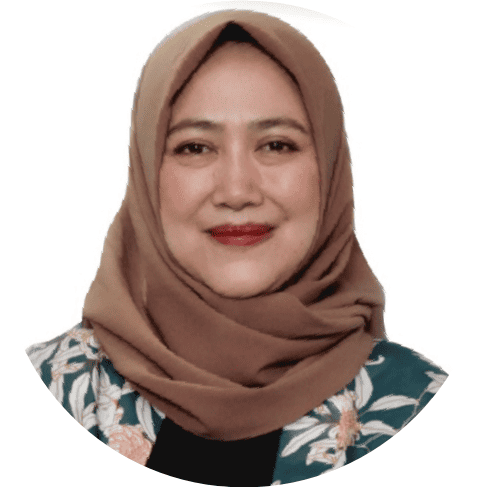Problematising Developmentalism in Global South Early Childhood Education
Developmental theories have long been influential and dominant in shaping policy, practice, and research in Early Childhood Education (Blaise, 2005; Gabriel, 2020; Wood & Hedges, 2016), including the often-associated brain theories and neurosciences. Key understandings of (early) child development include that children follow shared patterns of development at different stages of their growth; that the development is predictable and earlier-stage development provides the basis for later stages; that development spans across five main domains such as physical, cognitive, communication/language, social, and emotional; and that development must be holistic and cover all domains (Xu, Brooks, Gao, & Kitto, 2024). A prevailing approach to early childhood education underpinned by developmental theories is Developmentally Appropriate Practice (DAP) (Copple & Bredekamp, 2009; Gestwicki, 2013).
Nevertheless, developmental theories were constructed in particular contexts (e.g., Western) and histories, and therefore do not necessarily reflect the diversity of (early) childhood experiences in contemporary societies and in countries of the Global South (McCoy, 2022; Nolan & Raban, 2015). The normative and universal guidelines on what children are expected to develop at every stage/age may also disadvantage and marginalise children from various backgrounds, such as those with special educational needs and disabilities (SEND), those from a language background other than the main instructional language in a society, and those with other socio-cultural diversities and differences. As Dahlberg et al. (2013) have pointed out, developmental theories prescribe and constrain childhood experiences.
In this Global South Forum discussion, four speakers from Argentina (South America), China (East Asia), Indonesia (Southeast Asia) and South Africa (Africa) will share their respective research work aiming at disrupting developmentalism in early childhood education in the four named countries. We then invite the audience to problematize the dominance of developmentalism in early childhood education by sharing their own insights and/or work; as well as to discuss alternative, decolonizing approaches to policy, practice, and research in Global South early childhood education.
Nevertheless, developmental theories were constructed in particular contexts (e.g., Western) and histories, and therefore do not necessarily reflect the diversity of (early) childhood experiences in contemporary societies and in countries of the Global South (McCoy, 2022; Nolan & Raban, 2015). The normative and universal guidelines on what children are expected to develop at every stage/age may also disadvantage and marginalise children from various backgrounds, such as those with special educational needs and disabilities (SEND), those from a language background other than the main instructional language in a society, and those with other socio-cultural diversities and differences. As Dahlberg et al. (2013) have pointed out, developmental theories prescribe and constrain childhood experiences.
In this Global South Forum discussion, four speakers from Argentina (South America), China (East Asia), Indonesia (Southeast Asia) and South Africa (Africa) will share their respective research work aiming at disrupting developmentalism in early childhood education in the four named countries. We then invite the audience to problematize the dominance of developmentalism in early childhood education by sharing their own insights and/or work; as well as to discuss alternative, decolonizing approaches to policy, practice, and research in Global South early childhood education.
Speakers & Bios:

Forum Convenor
Associate Professor Yuwei Xu
University of Nottingham, UK
Associate Professor Yuwei Xu
University of Nottingham, UK
Yuwei Xu is an Associate Professor in Early Childhood Education at the University of Nottingham, UK. Previously he has held academic positions at University College London (UCL) and the University of Portsmouth. With a PhD in gender and early childhood studies gained from the University of Glasgow, Yuwei’s research interests include gender and men’s participation in early childhood education and care (ECEC), child agency, 0-3 curriculum, child-centred pedagogy, parenting and family relationships, play-based pedagogy, and teacher professional development. He is a co-editor-in-chief for three international journals including the British Educational Research Journal (BERJ), Children & Society, and Pedagogy, Culture and Society. In addition to being a BERA council member, Yuwei is also membership lead on the executive committee of Gender and Education Association.

Professor Vina Adriany
Indonesia University of Education, Indonesia
Indonesia University of Education, Indonesia
Vina Adriany is a Professor at the Department of Early Childhood Education, Universitas Pendidikan Indonesia. She also acts a Director for Southeast Asian Minister of Education Organization, Centre for Early Childhood Care Education and Parenting (SEAMEO CECCEP). Her scholarship focuses on the issues of gender and social justice in early childhood education (ECE), the construction of children and childhood in marginal communities, and the impact of neoliberalism in ECE. She sits as an editorial board member in several journals. She is currently a co-editor at Pedagogy, Culture, and Society journal, Routledge.

Professor Deevia Bhana
University of Kwazulu-Natal, South Africa
University of Kwazulu-Natal, South Africa
Deevia Bhana holds the DSI/NRF South African Research Chair at the University of KwaZulu-Natal, South Africa. Her research is transdisciplinary, drawing on feminist and new materialist theories to investigate the gendered sexual cultures of children and young people, their experience of violence and the ways in which education and other institutions can contribute to enhancing their sexual well-being, safety, and gender equality. She has authored 12 books and contributed to over 150 book chapters and peer-reviewed articles. She serves as the Co-Chair of RINGS (International Research Association of Institutions of Advanced Gender Studies) and is one of the Chief Editors of the journal Children and Society, Pedagogy, Culture and Society, while also serving as an Associate Editor of Health Education Journal. She is an elected member of the Academy of Science South Africa (ASSAF).

Professor Valeria LLobet
National University of General San Martín, Argentina
National University of General San Martín, Argentina
Valeria LLobet is a Full Professor in the School of Humanities, Universidad de San Martín, and researcher in CONICET (National Council of Research) - both based in Argentina. Her interests are the micropolitics of childhood, childhood and gender rights and the politics of inequalities. Her current research project is entitled ‘Children, youth, and families: social transformation, care crisis and future(s) in the long-covid’. She has served twice as Chair of the Childhood Studies track of the Latin American Studies Association and is the current President of the RC53 Sociology of Childhood, International Sociological Association.
